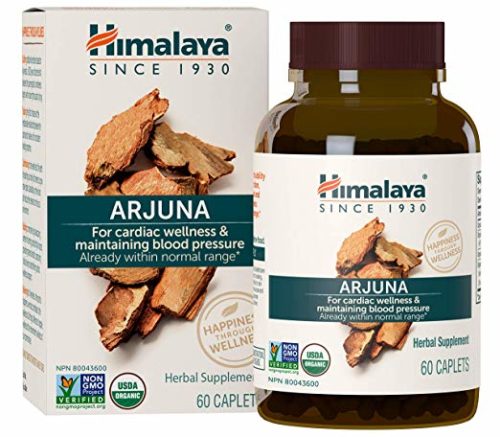Posts Tagged ‘Divya Mukta Vati’
Divya Mukta Vati
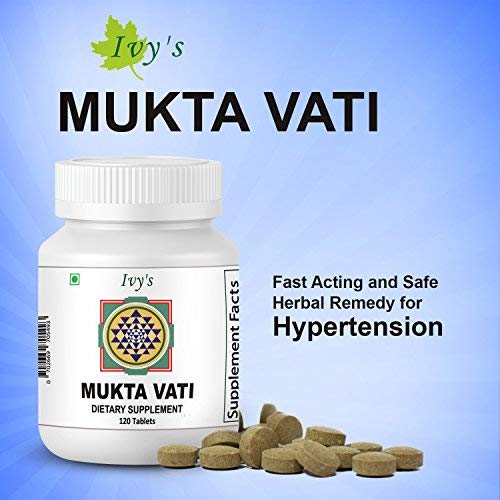
This is a herbal compound for lowering blood pressure. Of the 170 reviews on Amazon most are resoundingly positive with many hypertensives getting normal blood pressure in days. Others take longer.
About 10% report side effects so bad they stop usage.
These can include nasal congestion, depression and acid stomach. These are symptoms from a couple of the main ingredients.
Several of the ingredients are very well known so this is not some esoteric secret formula rather a mix of herbs commonly known to lower blood pressure.
Also you are not supposed to stay on this stuff rather use it to reset your nervous system & cardiovascular while implementing changes to lower BP. You should taper the dosage down as your BP lowers and lifestyle changes kick in – eventually stopping use.
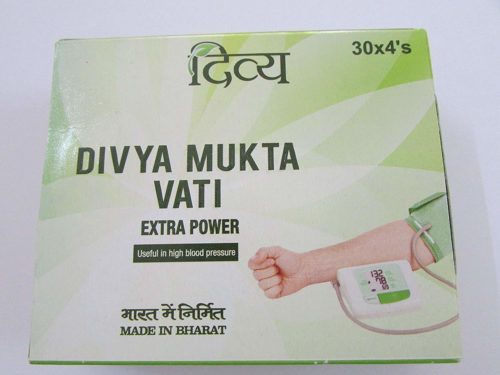
1. Depression
It is effective in depression and also calms the mental irritability and agitation. The herbs used in the making of Mukta are all itself a great anti- depressant agent. And hence due to this property, it is effective for reducing depression.
2. Anxiety
Anxiety is not good for your good health. Mukta Vati will help you in relieving your anxiety. The herbs used in the formation of MuktaVati are itself great anti-anxiety, antidepressant, and anti-stress agents. It provides a soothing effect and also relaxes your mind. And in turn, it helps in relieving your stress.
3. Mental Stress Or Irritability
Anti-stress and antidepressant herbs present in MuktaVati makes it effective for reducing mental stress. It provides the calming effect on your mind and reduces mental relaxes your mind and provides a soothing
4. Insomnia
Mukta Vati is also effective in inducing sleep. If you are suffering from the sleeplessness, then MuktaVati will help you. This is due to presence of mind soothing and relaxing herbs.
Shankhapushpi, Brahmi, Mukta pishti, Ashwagandha, and pravalpisthi herbs present in this medicine will help you in relaxing your mind and hence in inducing sleep.
5. High Blood Pressure Or Hypertension
Jatamansi and sarpagandha herb present in MuktaVati are itself, great antihypertensive agents. So it helps in relieving your tension.
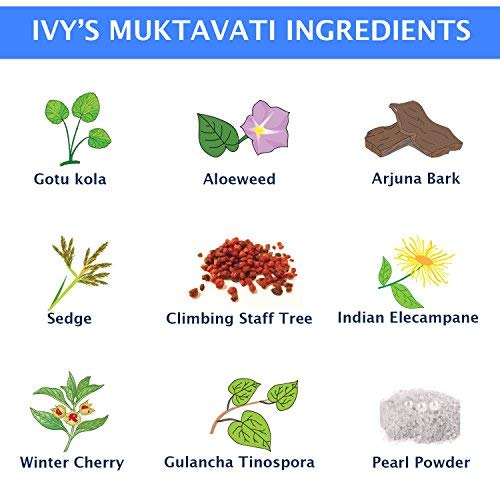
Mukta Vati’s Ingredients and How They Work
Mukta Vati is a traditional Ayurvedic herbal formula that has been used for centuries to treat hypertension, also known as high blood pressure. Mukta Vati contains a combination of time-tested Ayurvedic herbs which work in harmony to re-align the doshas and provide relief to symptoms of high blood pressure. But just what are these ingredients, and what benefits do they offer? Let’s take a look at Mukta Vati’s ingredients individually (Note: The following ingredients are used in the Ivy’s brand of mukta vati – to our knowledge this is the only brand containing Arjuna).
Name format
English name / Indian Name (Latin Name): Part of the herb used in Ivy’s Mukta Vati
Gotu Kola / Brahmi (Centella Asiatica): Whole Plant
Gotu Kola, also known as Brahmi, is a highly prized herb which is especially beneficial for managing the body’s stress response. Gotu Kola helps to nourish and strengthen the adrenal glands which release cortisol in times of stress. This herb is also highly beneficial to the circulatory system, helping to cleanse and balance the blood, strengthen veins and capillaries and improve the flow of blood around the body. Gotu Kola is also known for it’s memory and concentration boosting properties, making it a favourite of students in India in the weeks leading up to their exams!
Aloe Weed / Shankhapushpi (Convolvulis Pluricalis): Whole Plant
In Ayurveda, Aloe Weed (also known as Shankhpushpi) is used to calm the doshas, especially Vata and Pitta. By bringing the doshas back in to balance, aloe weed helps to restore a state of calm in the body, helping to relieve high blood pressure along with stress, anxiety and insomnia. Aloe Weed is also used to enhance focus and naturally boost energy levels.
Arjuna Tree/ Arjuna (Terminalia Arjuna): Bark
Arjuna Fruit and Bark
The bark of the Arjuna tree is traditionally used in Ayurveda to strengthen the cardiovascular system, making it a great herb for anyone suffering from hypertension. It is a hypolipidemic herb, meaning it helps to control LDL (bad) cholesterol levels whilst promoting the production of HDL (good) cholesterol. This, along with it’s mild diuretic properties, make Arjuna Bark a useful tool in the fight against high blood pressure. Only Ivy’s brand of Mukta vati contains arjuna.
Fresh Water Pearl Powder (Mukta Pishti)
Created by grinding the highest quality freshwater pearls into a fine powder, Pearl Powder is a rich source of various amino acids and over a dozen minerals, making it an extremely prized commodity in Ayurveda. Pearl Powder has been shown to be highly beneficial for the circulatory system, helping to improve the ease with which blood flows around the body. It is also beneficial for the skeletal and muscular systems, making it a popular supplement for Asian athletes. This ingredient has long been used for it’s anti-aging properties, as it contains a unique balance of amino acids, collagen and silica which help to promote youthful looking skin, hair and nails.
Sedge / Sweet Flag (Acorus Calamus): Leaf
Sedge goes by many names including Sweet Flag, Sweet Root and Flag Root and Acorus Calamus, often changing depending on the area in which it grows and the ailments it is used to treat. As well as having many names, Sedge has many uses; the stem, root, and leaves are all used, mainly as a digestive tonic, a sedative, and a diuretic. Sedge has been shown to dilate the blood vessels and reduce congestion in the respiratory system, making it an excellent herb for lowering blood pressure. In fact, the benefits of Sedge for hypertension have been clinically studied, with researchers approving the pharmaceutical benefits this plant can offer to the cardiovascular system1.
Climbing Staff Tree / Jyotishmati (Celastrus Paniculatus): Seed
The oil of the Climbing Staff Tree seeds have long been used in Ayurveda for it’s health giving properties. Jyotishmati is primarily used when there is an imbalance between Vata and Kapha; by restoring these two doshas, Jyotishmati helps to restore calm to the body, reducing stress and anxiety, thus lowering blood pressure. Jyotishmati is also beneficial to the digestive system, helping to increase digestive fire and provide relief to those suffering from constipation, whilst also being widely used for it’s ability to enhance memory and learning capacity.
Indian Elecampane / Pushkarmool (Inula Racemosa): Root
Elecampane Flower and Root
Indian Elecampane , also known as Pushkarmool, is a warming and calming herb, often used in Ayurveda to provide respiratory support for those suffering from coughs, sore throats, or breathing difficulties. By improving the efficiency with which oxygen is absorbed, Elecampane eases pressure on the pulmonary artery, allowing the heart to pump blood around the body more easily and oxygenate the muscles. Thus, Elecampane is particularly beneficial to those suffering from Pulmonary Hypertension, the symptoms of which include chest pains, dizziness, shortness of breath and fatigue.
Winter Cherry Root / Ashwagandha (Withania Somnifera): Root
Sometimes referred to as as ‘Indian Ginseng’ for its rejuvenating and lightly stimulating properties, Winter Cherry Root or Ashwagandha is an adaptogenic herb, meaning it can adapt to the challenges faced by the body and work to restore balance. As such, it is used to treat a wide range of conditions in Ayurveda. Ashwagandha has natural anti-inflammatory properties, and works to combat the effects of stress and promote a healthy stress response. It is used to reduce anxiety and promote a calm state of mind, which makes it a highly effective herb for those suffering from hypertension.
Gulancha Tinospora / Guduchi (tinospora cordifolia): Stem
Guluncha Tinospora Leaf
Guluncha Tinospora is an herbaceous vine native to the Indian subcontinent, and, like Ashwagandha, is an adaptogen used to treat a wide variety of health complaints. Guluncha is a purifying and tonifying herb, especially effective for cleansing the blood and the liver. By helping to purify the blood and removing waste matter, Guduchi helps increase our vata and allows our blood to circulate more freely. Guluncha has also been shown to help with the reduction of stress and anxiety, to support the immune system, and provide benefit to chronic skin disorders such as psoriasis and eczema. Guluncha is a powerful anti-inflammatory, making it an effective treatment for arthritis, gout, and other joint complaints.
When combined, the herbs in Mukta Vati have a deeply synergistic impact on the body and help to restore balance. Mukta Vati can provide great relief from hypertension; nonetheless, as with all herbal medicines, it should be looked at as a compliment to a healthy diet and lifestyle that consists of a healthy diet, fresh, clean drinking water, plenty of exercise and restful sleep to restore full balance to the body.
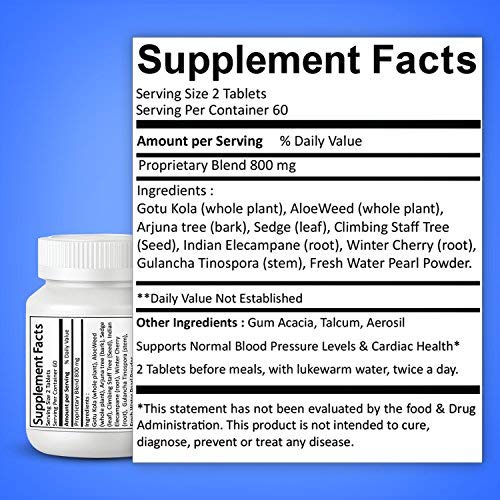
Sources
http://www.ncbi.nlm.nih.gov/pubmed/19528816
These herbs have relaxing, soothing and stress reducing properties. You can take 1 tablet with milk, 2 times a day.
Continue this remedy for at least 1 month. If still your blood pressure is not maintained you can take 2 tablets for 2 -3 times in a day.
Dosage And Administration Of Mukta Vati Medicine
1. Pre-Hypertension (Diastolic 80 – 89 And Systolic 120 – 139)
Under this condition, you should not take MuktaVati medicine.
Simple changes in diet will be effective in curing your problem.
2. Hypertension Stage 1 (Diastolic 90 – 99 And Systolic 140 – 159)
Under this condition take only 1 tablet with milk 2 times in a day.
3. Hypertension Stage 2 (Diastolic 100 Or Greater And Systolic 160 Or Greater)
If you are suffering from hypertension stage 2, then increase the dosage of MuktaVati
Take 2 tablets at a time with milk for 2 times every day.
4. Hypertensive Crisis (Diastolic Greater Than 110 And Systolic Greater Than 180)
This is a critical stage, and you should consult a doctor.Mukta Vati may be ineffective at this stage, and you should seek an emergency treatment.
Note
You can have a maximum of 6 tablets of MuktaVati in a day with a proper interval of time.
If your blood pressure is increasing, then you can increase the dosage but should not be more than the maximum
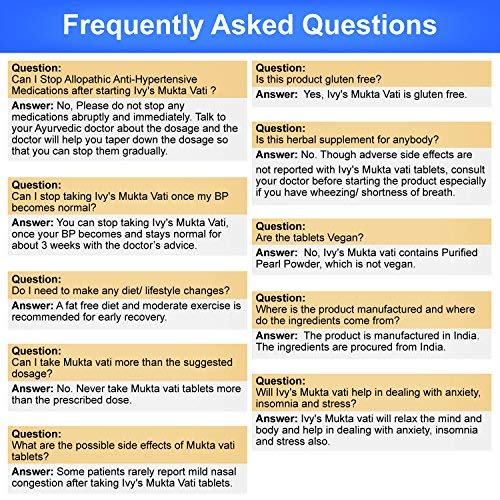
Side Effects Of Mukta Vati Medicine
Mukta Vati medicine usually doesn’t cause any severe side effects to your body.But sometimes it may cause side effects to your body. The sarpagandha or Rauwolfia serpentina herb used in the making of MuktaVati sometimes lead to nasal congestion in some people. Taken by itself this can cause clinical depression. But this compound also has antidepressant ingredients.
And its effect is more prominent when you take this medicine with water. And if you take this medicine with cow’s milk, then this effect is lesser.
General side effects of using MuktaVati medicine are-
Nasal congestion.
Lightheadedness.
Dry Mouth.
The problem in breathing while sleeping due to congestion.
Feeling of lethargy and discomfort in the morning.
Precautions
If medicines are not taken in proper amount or time, the results can be hazardous. So keep these things in mind while using MuktaVati medicine.
Take this medicine with cow’s lukewarm milk to reduce the symptoms of nasal congestion.
Also, take only a maximum 6 tablets of MuktaVati in a day with a proper interval of time.
Furthermore, if your blood pressure is not under limit increase the dosage but in a specified limit.
Different Manufacturers Of Mukta Vati Medicine
All brands are effective, but Divya MuktaVati medicine from Patanjali is more popular among all. You can prefer any one of them of your own choice.
Ivy’s Mukta Vati Medicine
Divya Mukta Vati Medicine From Patanjali
Baidyanath Mukta Vati
After treatment you should switch to something like this stuff below – dont keep taking Divya Mukta Vati
